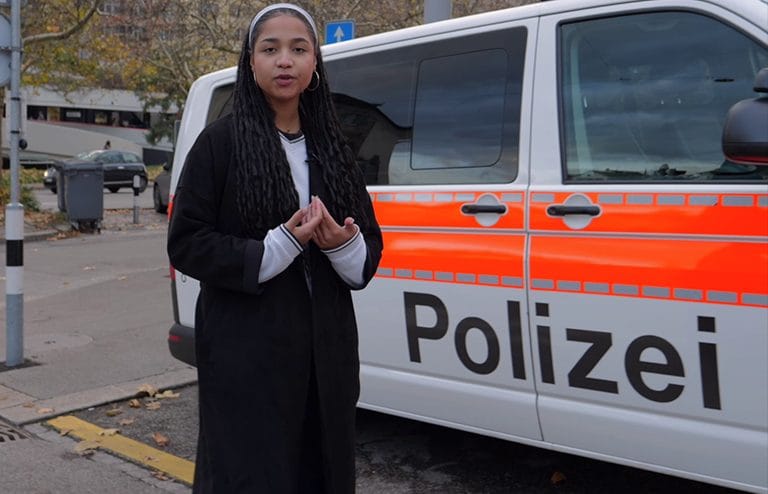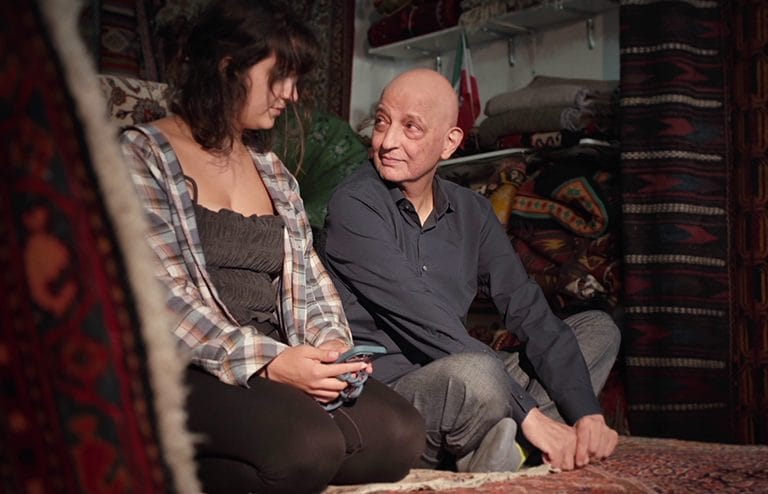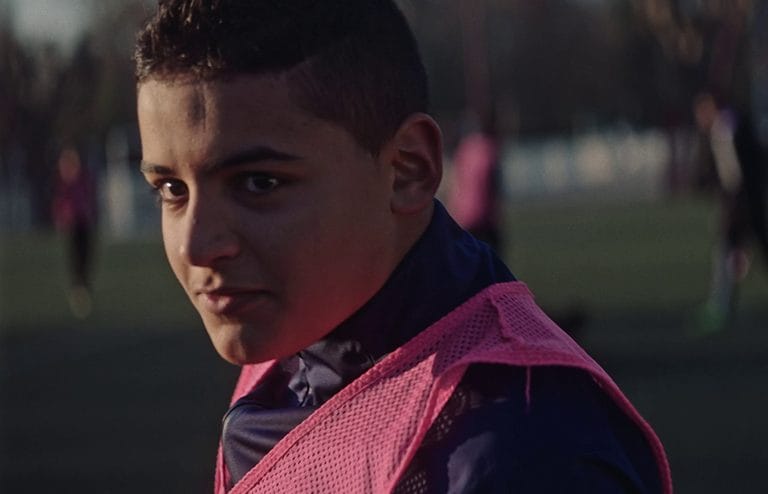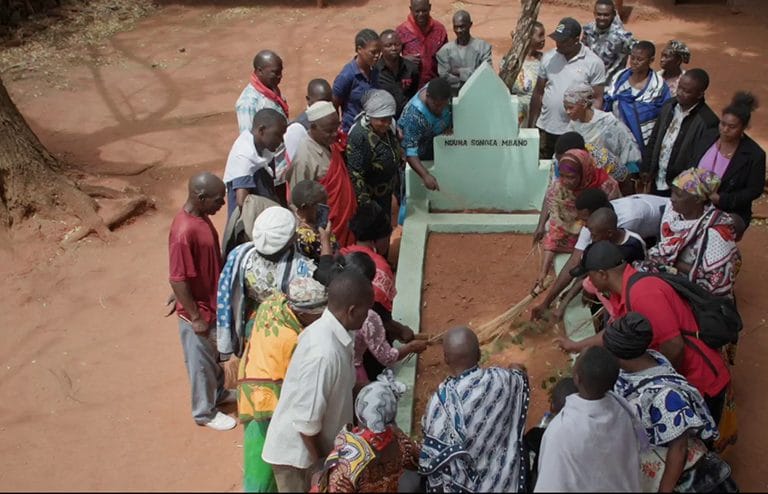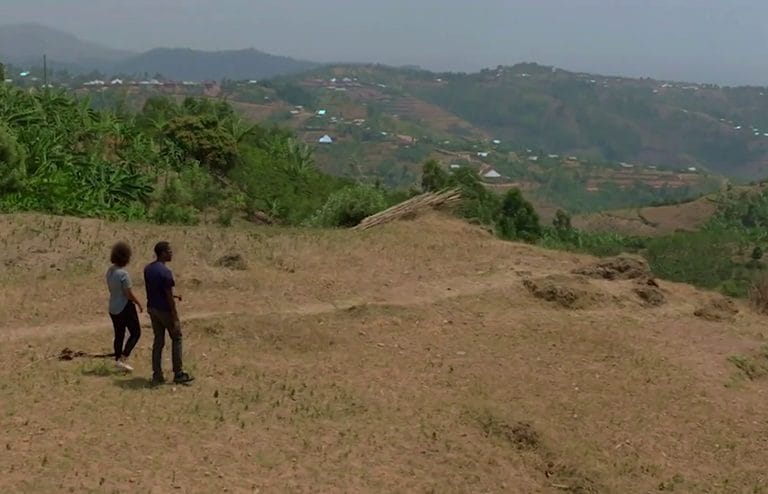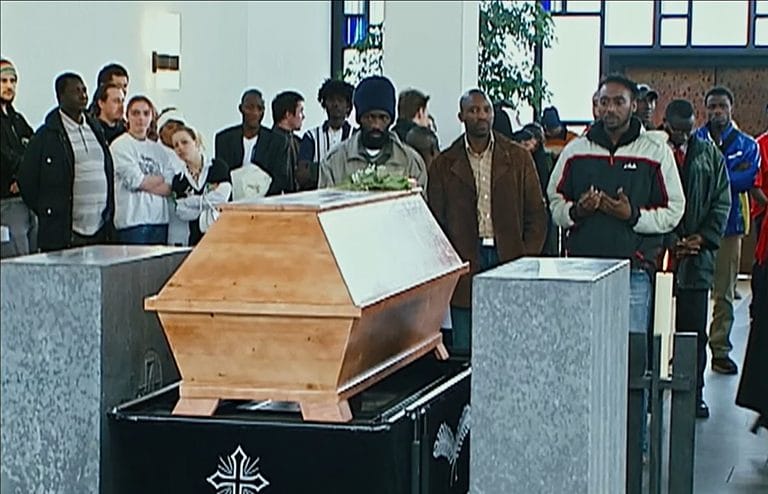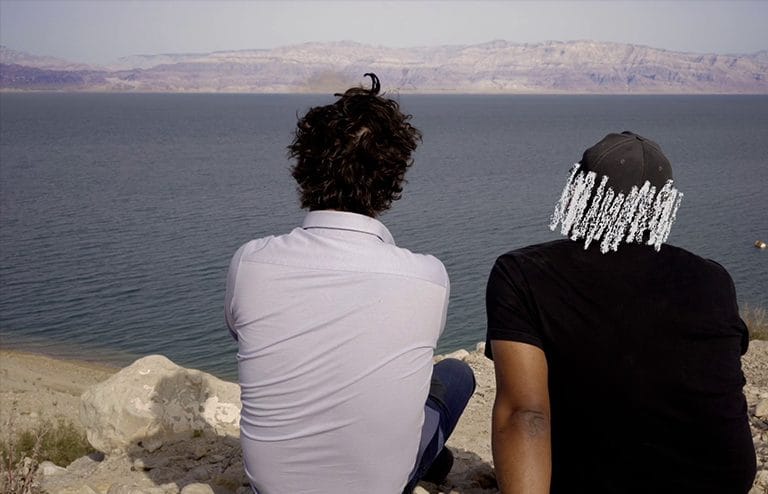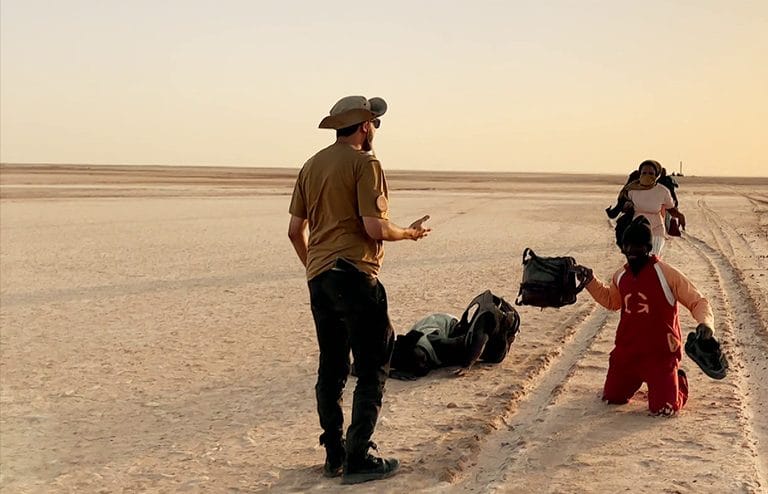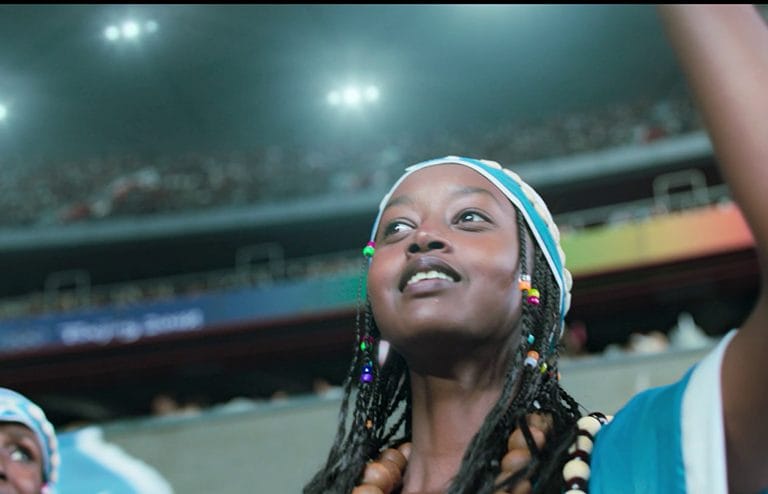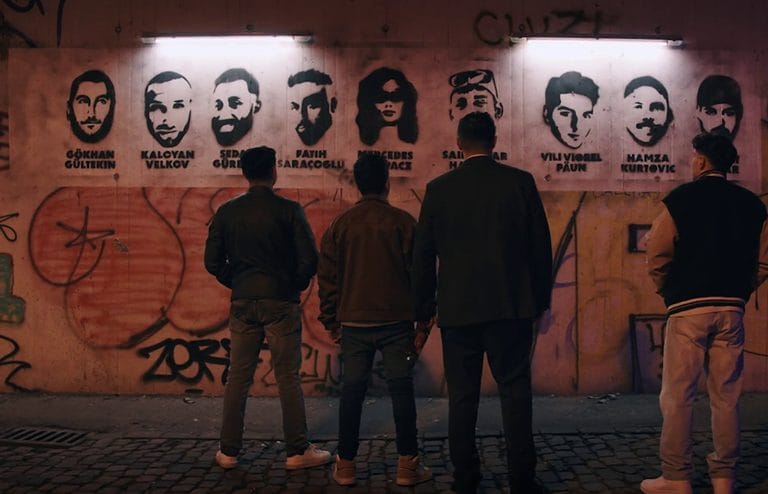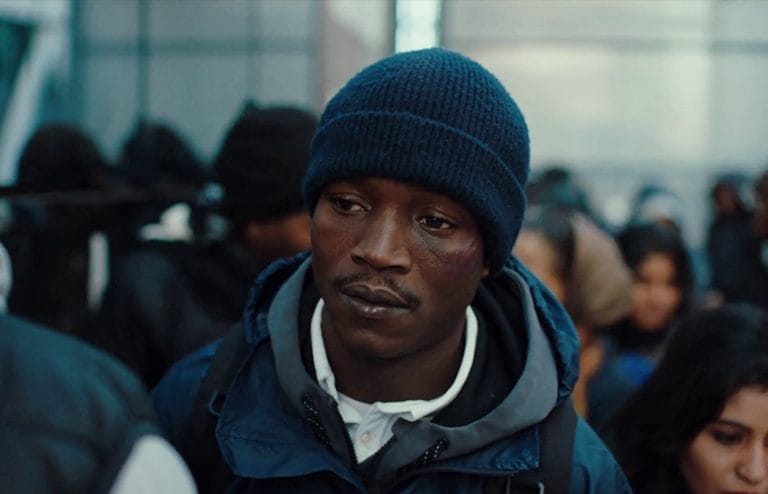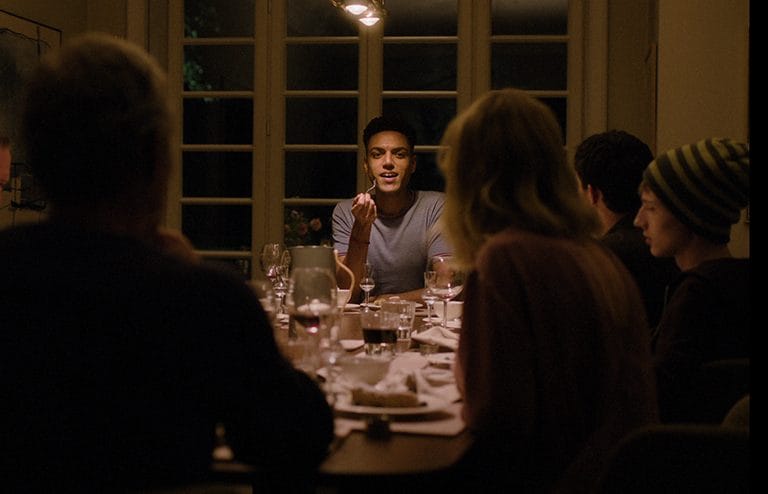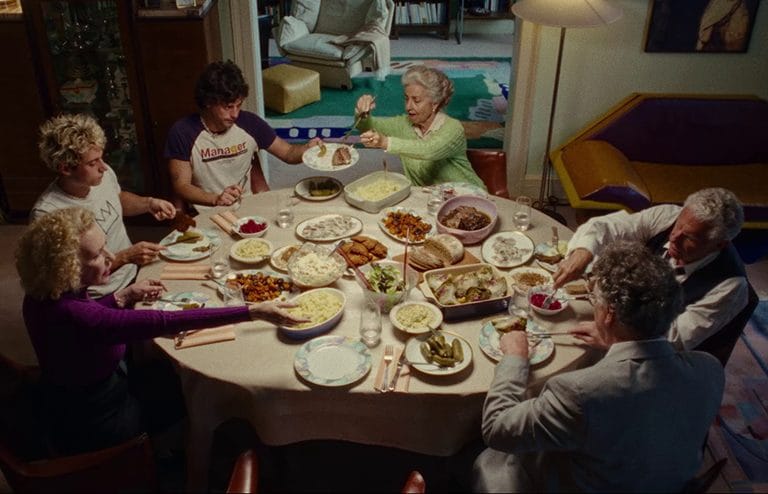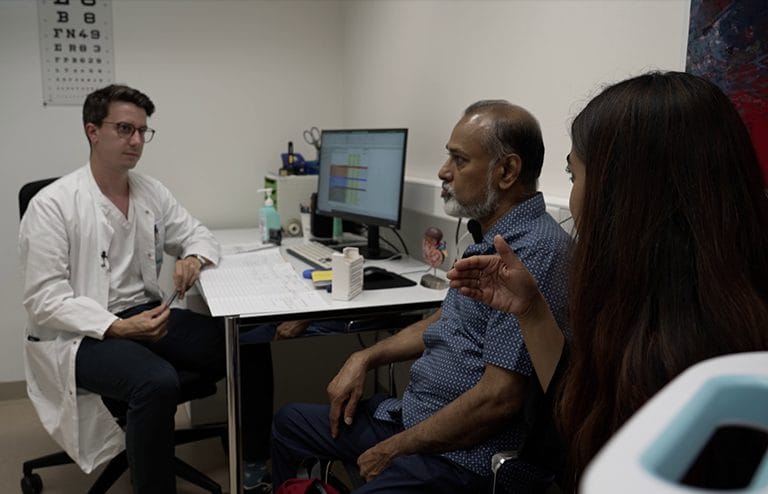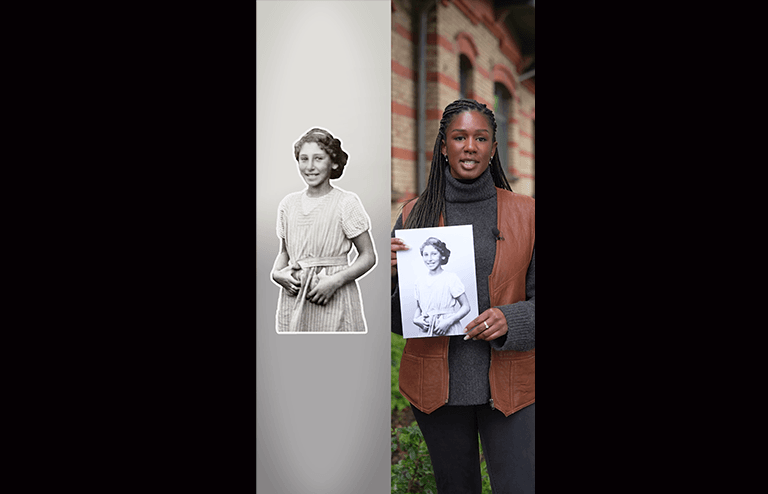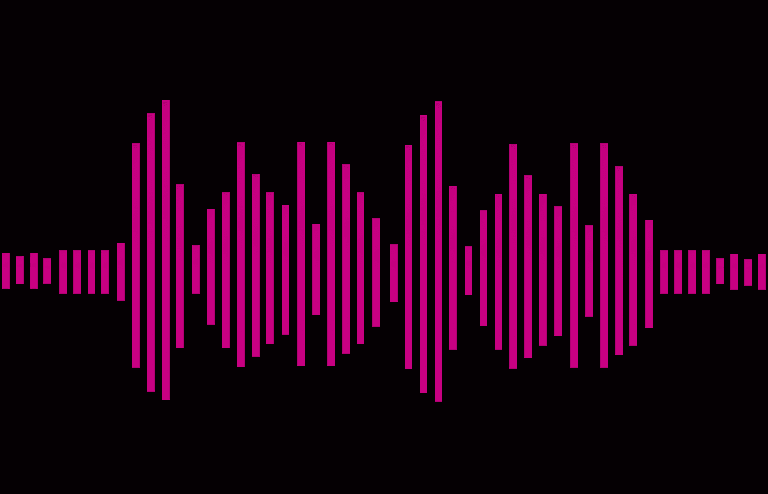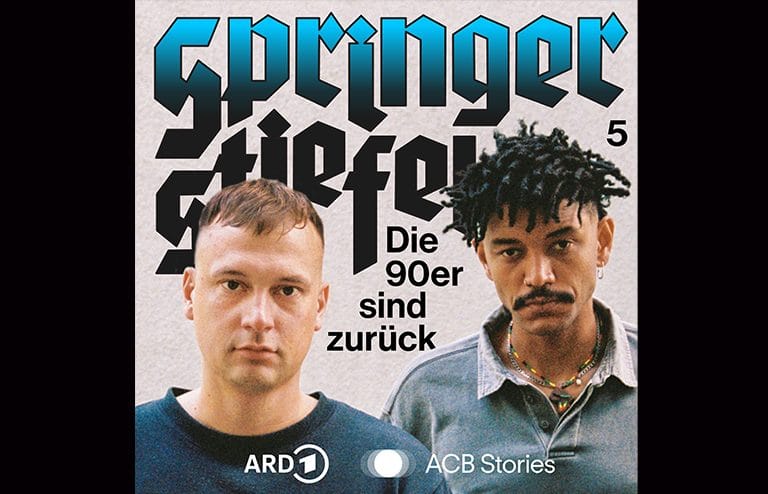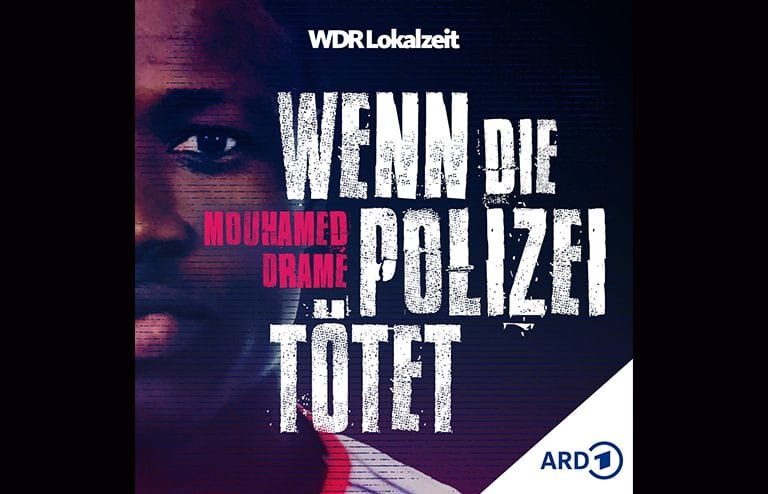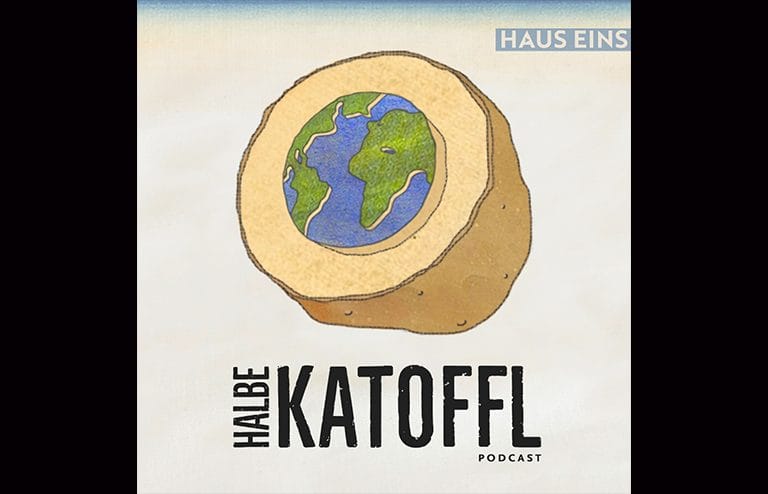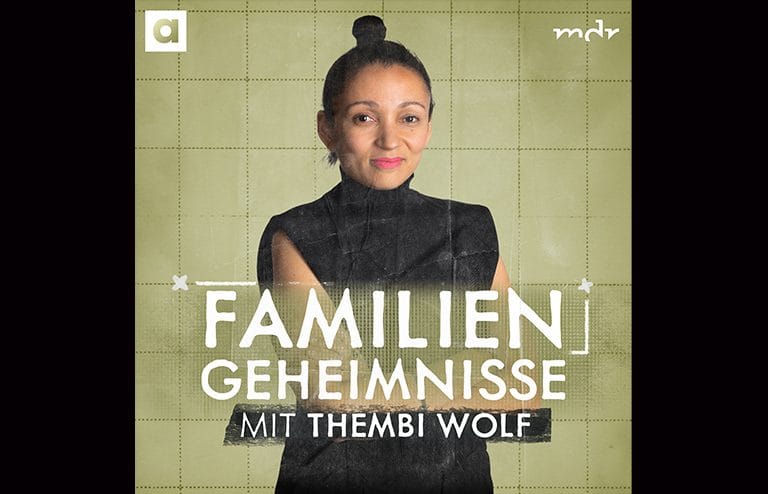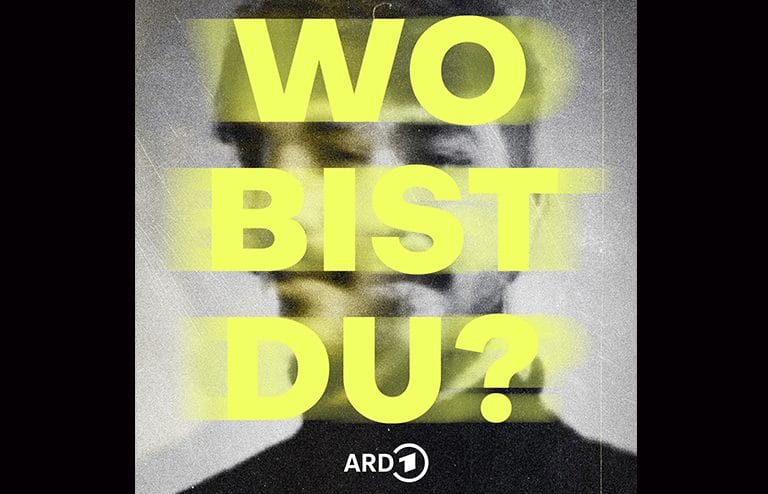
NOMINATIONS
CIVIS Media Prize 2025
CIVIS – Europe’s Media Prize for Migration, Integration and Cultural Diversity and – linked to this – social cohesion in Europe honours programme achievements in radio, television and the Internet which promote peaceful coexistence in the European immigration society. The CIVIS Cinema Prize as an audience award is added.
The award ceremony of the CIVIS Media Prize 2025 will take place on Monday, 26 May 2025 in Berlin as an additional event in the context of re:publica 25 and will be broadcast directly via livestream. The CIVIS Award Ceremony can be seen in the ARD Media Library from 28 May 2024. ARD / Das Erste will broadcast it on Thursday, 29 May 2025, at 00:05 am. The award ceremony will be hosted by journalist and presenter Mona Ameziane.
YOUNG C. AWARD
Black and under general suspicion: how widespread racial profiling is in Switzerland
Video report
watson.ch
Authors: Emanuella Kälin, Delia Julianna Klo, Kilian Marti
Editors: Emanuella Kälin, Delia Julianna Klo, Kilian Marti
Production: Emanuella Kälin, Kilian Marti
The starting point is a groundbreaking ruling by the European Court of Human Rights, which upheld a complaint by Mohamed Wa Baile in February 2024 and condemned Switzerland for racial profiling. It also ruled that the authorities had not adequately investigated whether racial prejudice had been used in a police checkpoint. The ruling prompted the authors to take a fundamental look at the problem.
“A competent and, in the best sense of the word, tenacious moderator leads us through a panorama of problems from multiple perspectives. The interviewees – passers-by, a racism expert, plaintiffs, police – are chosen with a sure hand. The result is a presentation that is particularly meaningful for a young target group.”
YOUNG C. AWARD
Souls unshackled
Documentary film
Little Dream Pictures | Filmfest Hamburg
Author | Director: Roxana Samadi
Production: Frank Geiger, Ali Samadi Ahadi, Mohammad Farokhmanesh, Armin Hofmann
On September 16, 2022, Jina Mahsa Amini was arrested by the Iranian morality police. Three days later, she died in custody. Her death triggered a wave of outrage, both in Iran and internationally. The film traces the protest through exiled Iranians who fled their homeland in the 1970s and second-generation German-Iranians.
“The author provides a very personal view of the inner turmoil of the Iranian community in the diaspora, with private footage of high documentary quality. There is the hope of returning home as well as the helpless frustration of those who can only follow events in their own or their parents’ homeland from afar. At the same time, the film conveys impressions of solidarity work abroad.”
YOUNG C. AWARD
Prince de la ville
Short movie
Filmakademie Baden-Württemberg | La Fémis
Authors | Director: Amina Krami, Kevin Koch
Production: Leon Harms, Daniel Huss
Examination board: Guido Lukoschek
Hamid’s family comes from Algeria, he himself was born in France and grew up there. Unlike his father Said, who never found his place in the new homeland, Hamid manages to settle down and gain recognition. His success in the soccer club, which becomes a family substitute, is particularly helpful. His father does not agree with this and reminds Hamid of his roots, which he must live up to. In contrasting ways, the two share the pain of a lost home.
“Here, the difficult search of young migrants for their own identity is told in a gentle, atmospherically dense way. On the one hand there are the expectations of the older generation, on the other the young people’s need for self-determination. A decisive moment in the protagonist’s life stands for a major conflict in the lives of many migrants.”
Currently no availability
CIVIS VIDEO AWARD
The empty grave
Documentary
kurhaus production | Kijiweni Production | ZDF Das kleine Fernsehspiel | Berlinale 2024
Authors | Directors: Agnes Lisa Wegner, Cece Mlay
Editor: Sara Günter
Production: Daniel Reich, Christoph Holthof, Amil Shivji, Luna Selle
To this day, tens of thousands of human remains from former colonies are stored in German museums. Two families from Tanzania are trying to locate and have repatriated the mortal remains of their ancestors. They were killed by the former colonial power and brought to Germany for racist ‘scientific’ purposes. The research becomes a painful encounter with German and Tanzanian bureaucracy. At the same time, the two families receive support from activists committed to clarifying this dark chapter of German history.
“This is an enlightening and stirring account of individual cases representative of a terrible crime committed against countless human beings. You get closer to the families through the filmmakers’ calm, appropriate view. It is carefully crafted and allows the issue at stake to breathe without becoming tedious.”
CIVIS VIDEO AWARD
Reclaiming History – Colonial Roots of the Genocide in Rwanda
Documentary
Deutsche Welle | YouTube DW Documentary
Authors | Director: Matthias Frickel, Samuel Ishimwe
Editor: Thomas Hasel
Production: Tim Klimeš, Rolf Rische
Co-production: Alexander Hogh, Samuel Ishimwe
The young filmmaker Samuel Ishimwe lost his parents in the genocide against the Tutsi in Rwanda. Together with director Matthias Frickel, he investigates how the racial hatred between Hutu and Tutsi came to Rwanda. In conversations with victims and perpetrators, with historians in Europe and Rwanda, the shared responsibility of European and, in this case, especially German colonialism is revealed.
“The documentary, thoroughly and comprehensively researched, is an invitation to think about co-responsibility for a supposedly distant event. A facts-based presentation drawing on personal experience helps to bring across what is at stake – an enlightening film in the best sense of the word.”
CIVIS VIDEO AWARD
ARD Crime Time: Why did Oury Jalloh burn to death? Episode 4/6: Code of Silence
Documentary
WDR | ARD Mediathek
Authors | Directors: Bence Máté, Anna Herbst
Editors: Britta Windhoff, Sabine Harder, Ina-Katrin Hüttig, Astrid Harms-Limmer
Production: Regina Bouchehri, Gunnar Dedio, Brigit Rasch
On February 7, 2005, Oury Jalloh from Sierra Leone burns to death in a holding cell in the Dessau police station. The six-part series examines the still unresolved question of the cause of death based on statements from relatives, lawyers, forensic doctors, a fire chief and a police station officer: Was Jalloh killed by police officers or did he set the fire himself? In this episode, two police officers are charged with involuntary manslaughter. However, the main prosecution witness subsequently changes her statement in favor of the defendants. During the trial, the court comes up against a wall of silence from the police. Even though more and more inconsistencies come to light.
“Meticulous research and outstanding journalistic craftsmanship provide new insights and aspects of a case that has already been extensively covered by the media. The result is an intrepid reconstruction of an institutional failure. This is not just any criminal case, but a milestone in the debate about racism in the police force.”
CIVIS VIDEO AWARD
There was nothing here before
Documentary
maximage | International Film Festival Rotterdam
Authors: Yvann Yagchi, Aurora Vögeli
Director: Yvann Yagchi
Production: Brigitte Hofer, Cornelia Seitler
Yavann Yagchi, a Swiss filmmaker of Palestinian origin, travels to the West Bank to understand how a break with a childhood friend came about. The former companion now lives there as a Jewish settler – the friendship has not withstood the political developments. At the same time, the author reveals the tragic story of his family in the occupied homeland.
“The film illustrates the varying ways in which different generations deal with the same fate. The author’s journey in search of a lost friendship leads to a place where there is no room for nuance. Although the two ex-friends grew up in Francophone Switzerland, the conflict shapes their lives.”
Currently no availability
CIVIS VIDEO AWARD
ARD Story: Abandoned in the desert – Europe’s deadly refugee policy
Documentary
BR | ARD Mediathek
Authors | Director: Philipp Grüll, Erik Häußler
Editors: Astrid Harms-Limmer, Elisabeth Lehmann, Klaas van Dijken, Ben Bolz
Production: Astrid Harms-Limmer,
Co-production: Elisabeth Lehmann, Klaas van Dijken, Ben Bolz
An international pool of reporters documents the systematic arrest and abduction of refugees and migrants from sub-Saharan Africa by North African security forces, some of which are co-financed by the EU. The film shows that European governments are well aware of this. Nevertheless, they continue to support the training and deployment of security forces in Tunisia and other countries. The devastating consequences of this policy remain largely hidden from the public.
“With the help of rigorous research, the film uncovers the ruthless practices within the framework of European migration policy and gives their victims a voice. They are not presented as numbers or cases, but portrayed as human beings in poignant images and impressive sound bites. At the same time, possible solutions are discussed.”
CIVIS VIDEO AWARD
Samia
Feature film
New Bioskop Film Leipzig | Filmfest Munich
Authors | Directors: Yasemin Samdereli, Nesrin Samdereli
Based on a book by: Giuseppe Catozzella
Directed by: Yasemin Şamdereli with the colaboration of Deka Mohamed Osman
Editors: Samanta Antonnicola, Frederico
Production: Simone Catania, Dietmar Güntsche, Anja-Karina Richter, Michele Fornasero, Francesca Portalupi, Martin Rohé, Joseph Rouschop, Riccardo Russo, David Herdies, Christoph Fisser, Yasemin Samdereli
This is the story of Somali runner Samia Yusuf Omar. She was the flag bearer for the Somali team at the 2008 Olympic Games in Beijing. When her home country refused to help her prepare for the 2012 Olympics, she attempted to flee across the Mediterranean to Europe. In April 2012, she died trying to climb onto a ship from an overcrowded rubber dinghy. She was 21 years old.
“A touching portrayal that convincingly combines family and social circumstances, documentary and fictional elements. The sport and Samia’s tragic journey become emblematic images that highlight the brutal harshness and injustice of the political discourse on flight and migration. People’s talent and potential are ignored where poverty and war dominate everything.”
CIVIS VIDEO AWARD
Uncivilized: From 9/11 to the Ukraine war. Episode 1: Hanau
Fiction series
Cocktailfilms | ZDF
Author | Director: Bilâl Bahadır
Creator: Çağdaş Eren Yüksel
Editor: Melvina Kotios (ZDF)
Production: Çağdaş Eren Yüksel, Luis Engels
The series examines how public discourse – about the terrorist attack of September 11, 2001, the attacks on the editorial offices of Charlie Hebdo and in Hanau, the night of riots in Stuttgart, the attack on Ukraine – affects the lives of migrants. Based on real cases, the subtle forms of everyday racism are traced, in which the rhetoric and thrust of the related social debates are reflected. In this episode, the racist attack in Hanau forms the background to the events.
“In a touching and authentic way, it illustrates how the echo of a drastic historical event reverberates into the lives of the affected community – ‘Hanau’ marks a rift, there is a before and an after. The tense worry of doing something wrong, the fear that something will happen, is omnipresent. This is captured precisely and authentically, especially in the language and gestures of the boys.”
CIVIS VIDEO AWARD
Souleymane’s Story
Feature Film
Pyramide Films | Cannes Film Festival
Authors: Boris Lojkine, Delphine Agut
Director: Boris Lojkine
Producer: Bruno Nahon
Souleymane, who comes from Guinea, is waiting in Paris for the outcome of his asylum procedure. He earns his living as a bicycle courier for a food delivery service. In doing so, he encounters the arrogance and resentment of wealthy customers, but also dependencies in the migrant community. In the evenings, he rehearses another person’s refugee story to improve his prospects at the asylum interview.
“A story of perseverance and not giving up despite all adversity, with great lay actors and a breathtaking script. It conveys the fate of the protagonist in a Kafkaesque situation with almost existentialist urgency. The film is fast-paced and exciting and is full of twists and turns steering clear of any clichés.”
CIVIS VIDEO AWARD
Black fruits. Episode 1: My dinner
Series
Studio Zentral | ARD Mediathek
Authors: Lamin Leroy Gibba, Sophia Ayissi
Creator/co-producer: Lamin Leroy Gibba
Director: Elisha Smith-Leverock, David Uzochukwu
Editors: Carolin Haasis, Christoph Pellander
Production: Lasse Scharpen, Faraz Shariat, Paulina Lorenz
Born in Hamburg, Lalo is in his mid-twenties, black and queer. The unexpected death of his father throws him off course. He quits his architecture studies. His relationship with Tobias is also in crisis. He finds support from his girlfriend Karla. Although she has a career in the financial sector, she suffers from subtle racism and her boss’s abusive behavior.
“Here, intersectionality is portrayed without a lecturing gesture. Dialogue, camera, editing and fabulous actors provide situational comedy and satirical looks at a well-meaning milieu considering itself full of understanding, but actually failing to live up to its own demands.”
CIVIS VIDEO AWARD
The Zweiflers. Episode 1
Series
Turbokultur | ARD Mediathek
Author: David Hadda, Dr. Sarah Hadda, Juri Sternburg
Directed by: Anja Marquardt, Clara von Arnim
Editors: Carolin Haasis, Christoph Pellander, Jörg Himstedt
Production: David Hadda, Martin Danisch
Showrunner: David Hadda
The Jewish Zweifler family owns a delicatessen empire in Frankfurt. In this episode, the head of the family, Symcha Zweifler, patriarch and Holocaust survivor, calls the family together to announce the imminent sale to an investor. This causes mixed feelings in the family – and Symcha Zweifler soon finds himself confronted with his past in Frankfurt’s red light district shortly after the Second World War. Meanwhile, the grandson Samuel, who has traveled from Berlin, falls in love with the cook Saba.
“A turbulent family story full of quirky characters and wit reveals a bourgeois Jewish milieu and a tradition that definitely deserve greater attention. This is state of the art accurate storytelling. The identity and traumas of the different generations are reflected on film in a way that is both clever and humorous.”
CIVIS VIDEO AWARD
To a Land Unknown
Feature Film
Salaud Morisset | Cannes Film Festival
Authors: Mahdi Fleifel, Fyzal Boulifa, Jason McColgan
Director: Mahdi Fleifel
Editor: Halim Sabbagh, Jakob Zimmermann, Julius Windhorst
Production: Geoff Arbourne, Mahdi Fleifel
Palestinian-Danish director Mahdi Fleifel tells the story of Lebanese refugees Chatila and Reda, who have made it to Athens and are keeping their heads above water as petty criminals. With the help of false passports, they hope to get ahead and save up for the fake papers. But Reda, a drug addict, spends the money on narcotics. Chatila hatches a risky plan to get them out of their desperate situation.
“A long story is told quickly and economically in short scenes, with hard cuts and ever new twists and turns. This is a movie that shakes you up, that hurts. The audience suffers along with the characters, in the constant ups and downs between hope and sadness. No straightforward moral position is offered, only the potential consequences of despair.”
CIVIS VIDEO AWARD
tahdurr: Reaction to the Sylt scandal
Social media format
Author | Editor | Producer: Tahsim Durgun
A cell phone video shows guests at a lively party on the island of Sylt in May 2024. They chant racist slogans and “Foreigners out!”. The scandal triggers heated debates in politics, the media and society. In contrast, Tahsim Durgun tackles the problem with the means of satire and shows that such types of people and their behaviour are everyday phenomena.
“Here, racism is presented with satirical means, not as the fault of individuals, but as a social problem. The shift to the right is not a thing that happened somewhere in the past, it is happening right now, even in well-to-do circles. The criticism is delivered with a light touch and subtle irony – and therefore particularly effective.”
CIVIS VIDEO AWARD
Young people with a history of migration support their parents – a natural act or forced by excessive demands?
Social media format
SRF | YouTube
Author: Sofika Yogarasa
Production: Ilona Stämpfli, Vanessa Nikisch
Editor: Anita Richner
In Switzerland, one in eight children between the ages of 10 and 15 are “young carers” who look after relatives in need of support. Many have a history of migration. Their particular problems with a service that is taken for granted and yet can be overburdening are hardly noticed in the so-called majority society. They are the subject of the report by Sofika Yogarasa, who has had to cope with such demands herself.
“The reporter takes us, kindly and gently, on a journey in which she pursues her own questions. It proves impossible to draw a precise line between humanity practiced as a matter of course and excessive demands. The dilemma is presented in a multifaceted way and full of warmth for the protagonists.”
CIVIS VIDEO AWARD
My Hidden History – Season 2
Community reporter Aminta: Forced sterilization of Rhineland children in 1937 (Ludwigshafen)
Social media format
SWR | SWR Kultur
Authors: Marie-Dominique Wetzel, Sabine Mahr, Aminta Löhlein
Editors: Sabine Mahr, Marie-Dominique Wetzel, Anja Schildknecht, Nadja Röll,
Marie-Christine Werner
Production: Stephan Klaucke
In “My Hidden History”, young users present an event from the regional history of their southwest German home that particularly fascinates them, based on their own research. Topics include colonialism, feminism, LGBTQ+, right-wing extremism and migration. This episode is about the forced sterilization of Black Germans under the National Socialists. The presentation of a lesser-known Nazi crime has met with lively interest with over 150,000 views.
“The exemplary episode from the history of the southwest region is utterly credible through the linguistic means used, the participatory approach and the way it is presented. “My Hidden History” proves to be a format that introduces a young target group to a very serious, highly relevant topic, in this case the Third Reich, using refreshing formal means.”
CIVIS AUDIO AWARD
Feature antenna: Unfinished stories – The boot in the ice
Short feature
Deutschlandradio | Deutschlandfunk Kultur
Author | Director: Thomas Franke
Editor: Dr. Ingo Kottkamp
In the Caucasus, on Mount Elbrus, a soldier’s boot is found that apparently belonged to a German. The author tries to clarify what happened at the site. But in a region where Russia is waging on its own soil a “war against terrorists” and the invasion of its neighbor Ukraine is omnipresent, the investigation remains stuck in a leaden atmosphere.
“Thematically, this is a far-reaching approach that is still relevant today – wars of the past continue to have an impact and overlap with those of the present. The production is outstanding and provides a convincing example of what radio can do.”
CIVIS AUDIO AWARD
Echo der Zeit: Roma and yet the best child in the world
Magazine feature
SRF
Author: Roman Fillinger
Editors: Iwan Lieberherr, Zita Affentranger
Romanian actress and director Alina Șerban grew up as a Roma in a Bucharest slum and was exposed to everyday discrimination. In her autobiographical drama “The Best Child in the World”, she shows how difficult it is to assert oneself as a member of an ethnic minority in a European society and how easily discrimination can turn into self-hatred. The audio portrait traces how Șerban escapes self-destruction.
“A path to self-empowerment, traced through fascinating sound bites. Based on the biography of a social climber, this very personal, always exciting and interestingly narrated film also documents a slow social change.”
CIVIS AUDIO AWARD
Information in the morning – Syrian Kurds in Germany between hope and fear
Reportage
Deutschlandradio | Deutschlandfunk
Author: Katharina Thoms
Editor: Sebastian Ehl
The fall of the Assad regime in Syria has plunged exiled Kurds in Germany into a dilemma: unbridled joy on the one hand, great concern for the well-being of their relatives back home on the other. The documentary captures the conflicting emotions based on the story of two Kurdish migrants from Göppingen and Stuttgart.
“A high level of information is conveyed in a very lively and understandable way. Despite a short reaction time and a confusing news situation, an authentic and differentiated picture of the lives of two exiles emerges. The reportage does not succumb to the temptation to present supposedly simple solutions and shows real ambivalences without lecturing.”
CIVIS AUDIO AWARD
Hamburg’s baseball bat years – right-wing violence in the 1980s
Feature
Deutschlandradio | Deutschlandfunk
Author: Philipp Schnee
Director: Beatrix Ackers
Editor: Christiane Habermalz
The supposedly peaceful Hanseatic city of Hamburg experienced a wave of right-wing violence in the 1980s: eight murders, numerous arson attacks, assaults and serious bodily harm. This happened a decade before the frequent right-wing assaults in East Germany were labeled the “baseball bat years”. In the DLF feature, two protagonists talk not only about the violence they experienced, but also about the counter-movement of migrant and civil society groups.
“The extensive research makes it possible to reappraise a decade that has not been sufficiently illuminated. A community of people with a history of immigration, rightly suspicious of the police and authorities, became politically active and organized resistance. It is well constructed and grippingly told.”
CIVIS AUDIO AWARD
“Do you really think someone will get us out of here?” The controversial imprisonment of IS member Maria G.
Feature
ORF | Ö1
Author | Director: Eva Roither
Editor: Elisabeth Stratka
Sound: Martin Leitner, sound pieces: Stefan Weber, Speakers: Eva Mayer, Gerti Drassl, Ursula Scheidle
The feature tells the story of Maria S., who went to Syria at the age of 17, married a suspected IS fighter and had two children with him. The three have been held in a prison camp in north-east Syria since 2019. However, unlike other European countries, the Austrian authorities refuse to officially repatriate mothers like Maria. An appeal against the refusal was successful before the Federal Administrative Court shortly after the feature was first broadcast.
“A grippingly told story based on years of extensive research that allows for an instructive comparison between European countries handling radicalization. The reporter gets close to the people involved and delivers a particularly touching portrayal of the parents.”
Currently no availability
CIVIS AUDIO AWARD
Faces of Europe: Greenland – The colonial era still shapes life today
Reportage
Deutschlandradio | Deutschlandfunk
Author: Gunnar Köhne
Director: Babette Michel
Editor: Katrin Michaelsen
Greenland, an autonomous territory in the Kingdom of Denmark, geographically does not belong to Europe, but it is part of the history of European colonialism. In the 1950s, Greenlandic children were brought to Denmark for forced adoption, and in the 1970s and 1980s thousands of Greenlandic girls were implanted copper contraceptive coils against their will. It took a long time for these stories of suffering to find their way into the public consciousness. In the meantime, they have become an important element of the Greenlanders’ growing desire for complete independence.
“The reportage provides a multitude of little-known facts and findings on a European topic that so far has received little attention. The comprehensively researched reportage illustrates the long-term painful consequences of colonialism in touching sound bites.”
CIVIS AUDIO AWARD
SPRINGERSTIEFEL – The 90s are back
Episode 5: Red Lines
Storytelling podcast
ACB Stories | MDR | Fritz vom rbb | ARD Audiothek
Authors | Editors: Don Pablo Mulemba, Hendrik Bolz, Jan Philipp Wilhelm, Julius Wußmann, Viola Funk
Author Hendrik Bolz and reporter Don Pablo Mulemba go in search of clues: Why are there again so many right-wing extremist, sometimes violent young people in eastern Germany? In this episode, they talk to Daniela, a youth worker from Zittau, whose son has joined the far right. Ahmed came from Tunisia and was chased through the streets of Chemnitz in 2018. Despite all his racist experiences, he loves the city. The hosts compare the stories of the protagonists with their own experiences.
“The very personal approach of two hosts who, as East Germans, know from their own experience what they are talking about. The result is not an ‘ethnic’ view from above, but a very differentiated exchange with strong protagonists. An example of how YouTube lingo can work – right up to pointing out possible solutions.”
CIVIS AUDIO AWARD
Wild Wild Web – Stories from the Internet, Season 4
The first Talahon
Podcast (documentary)
BR | ARD Audiothek
Authors: André Dér-Hörmeyer, Alexander Gutsfeld, Janne Knödler
Director: Rainer Schaller
Editors: Till Ottlitz, Vanessa Schneider
Contrary to expectations, Hassan’s rap song “Talahon” proved a mega-hit on the internet. The word itself quickly became a popular term for young migrant men and even made it into the top 3 “words of the year”. However, racists soon hijacked the humorous self-designation and use it as a fighting term to mock opponents of their extremist views – and also to degrade people like the song’s creator.
“A social debate is artfully interwoven with a biography. At the same time, the documentary takes a differentiated look at a side of the internet probably unknown to many. It arouses curiosity in a place where one should be curious.”
CIVIS AUDIO AWARD
Mouhamed Dramé – When the police kill
Episode 4: The escape
Serial storytelling podcast
WDR | ARD Audiothek
Authors: Catherine Jaspard, Christof Voigt, Adrian Breda, David Peters, Jan Schulte, Tobias al Shomer
Editors: Christian Beisenherz, Till Krause
The podcast examines the circumstances and background to the death of Mouhamed Dramé, a 16-year-old refugee from Senegal. A police officer shot him dead in Dortmund on August 8, 2022 – the young man was in an exceptional psychological situation in which he actually needed help. At subsequent demonstrations, the security forces were accused of racism and illegal violence. This episode explores the question of what the experience of being on the run has to do with his death.
“An enormous amount of research enables a detailed, precisely traced picture of a depressing fate. The case has been widely covered in the media, but is presented here in a much more in-depth way that gets very close to the people involved.”
CIVIS AUDIO AWARD
Half Katoffl
Burak Yilmaz (TUR/ KUR): Alman mode, Auschwitz encounter & youth center work
Podcast
Author | Editing | Production: Frank Joung
Co-production: Burak Yilmaz
Berlin journalist Frank Joung, whose parents are from Korea, talks to Burak Yilmaz, a Duisburg resident with Kurdish-Turkish roots who works as a freelance teacher and author. In the interview podcast featuring Germans from migrant families, Yilmaz talks about his experiences as a youth, about radicalization, generalization and trivialization, about terror export and “imported anti-Semitism”.
“The host manages to get very close to his guest, to find a common level of conversation and to link his own experiences to those of others. In this way, a piece of immigration history is told using a biography as an example. The in-depth conversation is rich in detail and fascinating throughout.”
CIVIS AUDIO AWARD
Family secrets – Tell me who I am
Episode 6: Allah or Julia? Where Tariq hides his forbidden love
Storytelling podcast
MDR | ARD Audiothek
Authors: Thembi Wolf, Anh Tran
Editors: Ulivia Gattermann, Marvin Standke, Jenny Häschel, Nathalie Ladermann, Katharina Rahn
Production: Johanna Behre
In this episode of the series “Family Secrets – Tell me who I am”, Tariq tells his story to the host Thembi Wolf: he grows up in the Islamic Ahmadiyya religious community as a “promised child”. Contact with people of other faiths is frowned upon and romantic relationships are forbidden. Nevertheless, Tariq begins a relationship with Julia and keeps it secret until it is no longer possible. He confesses the truth to his parents in a letter.
“The impressive protagonist is given space to impart knowledge and insights based on his own experiences. The podcast gets close to him and his ‘secrets’ and yet remains cautious and respectful throughout. The narrative is put into context in an understanding and empathetic way.”
CIVIS AUDIO AWARD
Where are you? Lost on the run.
Episode 1: The siblings’ escape
Documentary podcast
SWR | Deutsche Welle | NDR | Studio Jot | rbb | WDR | ARD Audiothek
Author: Antonia Märzhäuser, Borhan Akid, Stefanie Delfs, Dawid Romanowski
Host: Dawid Romanowski
Director: Johannes Nichelmann, Florian Balmer, Sufian Auda, Aljoscha Kupsch
Editors: Nadja Odeh, Romy Sickmüller, Miriam-Anna Hochhard, Nils Kinkel, Helene Feldmeier
Production: Johannes Nichelmann
Sara is Kurdish and comes from Iran; she works as a controller for a large business consultancy firm in Sweden. Her siblings Soma and Puria also want to move to Europe. Because they can’t get a visa, they risk a dangerous escape by sea. The crossing escalates and they lose contact with their sister. Sara desperately tries to find out what happened. An episode of the research podcast on the fate of missing refugees from Iraq, Yemen, Morocco, Iran, Lebanon and Syria.
“Precise research provides an intensive rendition of the diversity of flight stories. The fate of those who have disappeared without a trace is seldom considered. Here it is told with precision and compassion. At the same time, the families of the refugees and their views are also adressed.”
Header: CIVIS
Nominierungen: Screenshots CIVIS
Podcasts:
Mouhamed Dramé: © Mirko Schweikert/WDR
Wo bist Du?: © SWR/ Studio Jot
Springerstiefel: Foto: Moïse Youmba/ Design ACB Stories
Familiengeheimnisse: Foto: Nils Lukas/ Covergrafik: Konstantin Gramalla
Wild Wild Web: © Bayerische Rundfunk
Halbe Katoffl: © Halbe Katoffl


